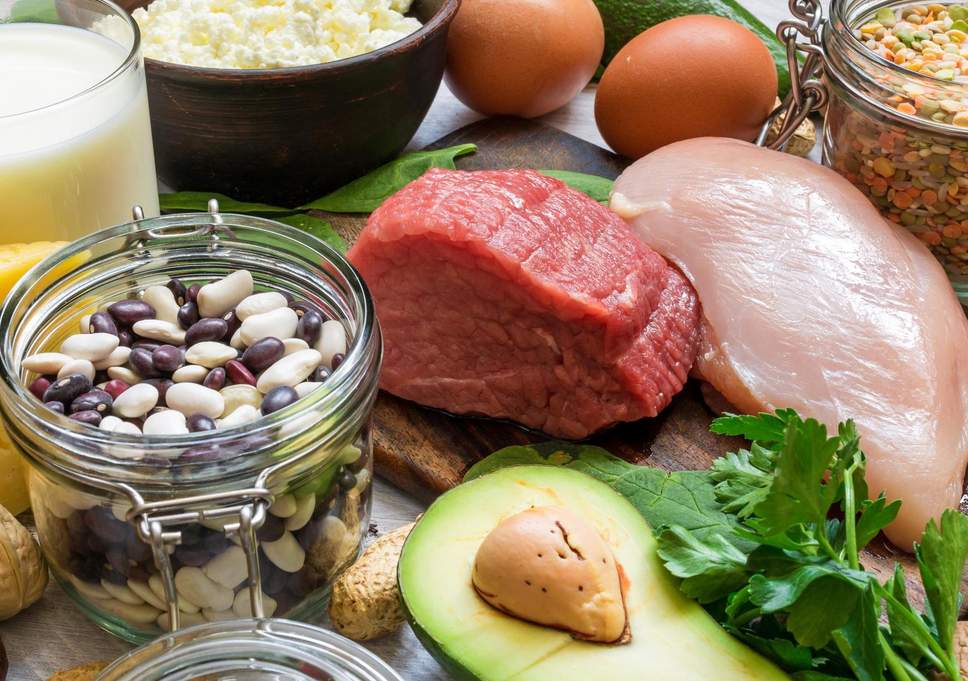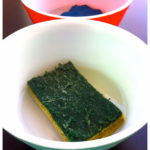A lot of people have the misunderstanding that “not all vitamins are important.” Well, this is one of the few reasons why people succumb to supplements instead of finding proper natural food which has nutrients. In fact, a lot of people might not even be aware that there are a couple of vitamins our bodies need. The usual would be vitamin C, vitamin E, and Iron. However, there are far more nutrients our bodies need.

Vitamin B12
This vitamin is one of the more overlooked vitamins in the chart. Why? Because there are not a lot of supplements of this specific vitamin. Moreover, vitamin B12 is not advertised as well as vitamin C and other daily needed vitamins.
Read: Most People Ignore These Vitamin B12 Deficiency Signs
Vitamin B12 is a vitamin which is relevant for the production of Deoxyribonucleic Acid (DNA) and red blood cells. In addition to that, it is a critical part of the health of our brains and nerves.
Just like other vitamins, it’s produced by our bodies naturally, right?
This is where the misconceptions start. Vitamin B12 is an essential vitamin and is critical for our health. However, our bodies don’t naturally make vitamin B12. So, you can’t rely on natural bodily functions in order to have the sufficient amount of this mineral.
How can you acquire vitamin B12?
There are over-the-counter supplements and other medications that are high in vitamin B12. Since our bodies don’t make this mineral naturally, we have to manually obtain it from supplements and food.
The National Institutes of Health (NIH) said that the recommended daily intake (RDI) of vitamin B12 is 2.4 micrograms (mcg) for adults over fourteen years of age; 2.6 mcg for pregnant women; and 2.8 mcg for breastfeeding mothers.
We cannot agree more that taking vitamin B12 supplements can be rewarding. However, it’s always best to go natural, right? So, here are some foods rich in vitamin B12.
Nondairy Milk
Nondairy milk is a type of milk that is fine if taken by people who are lactose intolerant. As a matter of fact, this is a good alternative for people who want to drink milk but have allergies and dietary restrictions. Some of the ingredients it has would include: cashew, oat, soy, almonds, and coconuts.
Read: Everything You Need To Know About Vitamin B12 Deficiency
To give you an example, one (1) cup or 240 ml of fortified nondairy milk can provide the enough RDI of 2.6 mg. Just by drinking a cup of nondairy milk can accommodate 50 percent of the bodies RDI for vitamin B12.
Beef
Some of these would include red meat like roasts, ribs, sausages, and steaks. These, as a matter of fact, are excellent sources of vitamin B12. They have all eight (8) relevant amino acids which our bodies require for maintenance and growth.
For example, one (1) flat iron steak or 186 grams actually have 200 percent of the RDI of people’s vitamin B12. In addition to that, other minerals include selenium, vitamin B12, niacin, zinc, and iron.
To get the most B12 out of red meat, it’s recommended that you roast or grill it than frying it. The oil will suck out and release the nutrients from the beef. Also, beef cuts that have low-fat are richer and better in terms of providing nutrients and minerals.
Read: Common Nutrients That Most People Lack
Clams
If you want a meal that is high in lean protein and is low in fat, then clams would be your best option. Eating twenty (20) small clams already offer 3,300 percent of vitamin B12’s RDI.
Clam broth, just the soup itself, already contains 2.7 to 14.1 mcg of citamin B12 in every 3.5 ounces of serving. This figure would add up to 1,600 of the RDI of vitamin B12.
Salmon
Do you need something delicious and healthy all at the same time? You can never go wrong with salmon. Salmon is one of few foods filled with healthy omega-3 fatty acids and can provide a total of 80 percent of the vitamin B12 RDI.
A serving of 3 ounces of salmon already contains 4.9 mcg of vitamin B12 and a half of cooked salmon fillet would provide 80 percent of the RDI. Salmon, as a matter of fact, is one of the few foods that is recommended by medical practitioners to patients who suffer from c****r and dementia because the nutrients and minerals of salmon can effectively combat it.
Read: Colon Cleansing Foods You Should Eat Regularly
Sardines
No, sardines is not just food for the poor. In fact, sardines have 200 percent of the RDI per serving of 100 grams. Most commonly, these little fish is canned in oil and water and are loaded with vitamin D, iron, zinc, and healthy omega-3 fatty acids.
If you successfully consume healthy amounts of sardines, it can effectively enhance heart health, it can deter cell damage, and will effectively decrease inflammation.
Read: Subtle Symptoms of Vitamin C Deficiency You Most Often Overlook
Organ meat
Probably the types of food that not a lot of people eat. Organ meats are considered one of the most effective counters of vitamin B12 deficiency. These organ meats include the heart, brain, tongue, tripe, and the liver.
Liver tops the list; veal and beef liver provide an astonishing 990 percent of the RDI per 3.5 ounces of serving. Lamb liver, on the other hand, offer 1,500 percent of the RDI, also per 3.5 ounces of serving. Can you imagine the amount of vitamin B12 livers provide?
Kidneys of beef, veal, and lamb are also exceptionally excellent sources of vitamin B12 as they offer 1,300 percent of the RDI per serving of 3.5 ounces. The regular 3 ounces or a portion of these organs give out an estimated 70 mcg of vitamin B12.
These organ meats also have valuable nutrients and minerals like vitamins A, D, K, and E, iron, copper, phosphorus, and magnesium. Organ meat also is high in saturated fat and cholesterol so consuming a lot of organ meats is also not that recommendable.
Read: Dietary Supplements to Help You Get Better Sleep
Tuna
Tuna, just like sardines, is something that is often referred to as something that is eaten by the poor. However, tuna has some special health benefits to offer. Other than the fact that it’s water-packed, a canned tuna substantially provides 4.9 mcg of vitamin B12, completing 85 percent of the RDI.
Consuming 3.5 ounces of fresh tuna provides 160 percent of the recommended daily allowance of vitamin B12.
So, if you think or if you are noticing that you are somehow losing vitamin B12, instead of clenching to vitamin B12 supplements, you can try and consume these foods rich in vitamin B12 to satisfy the daily serving it needs.


